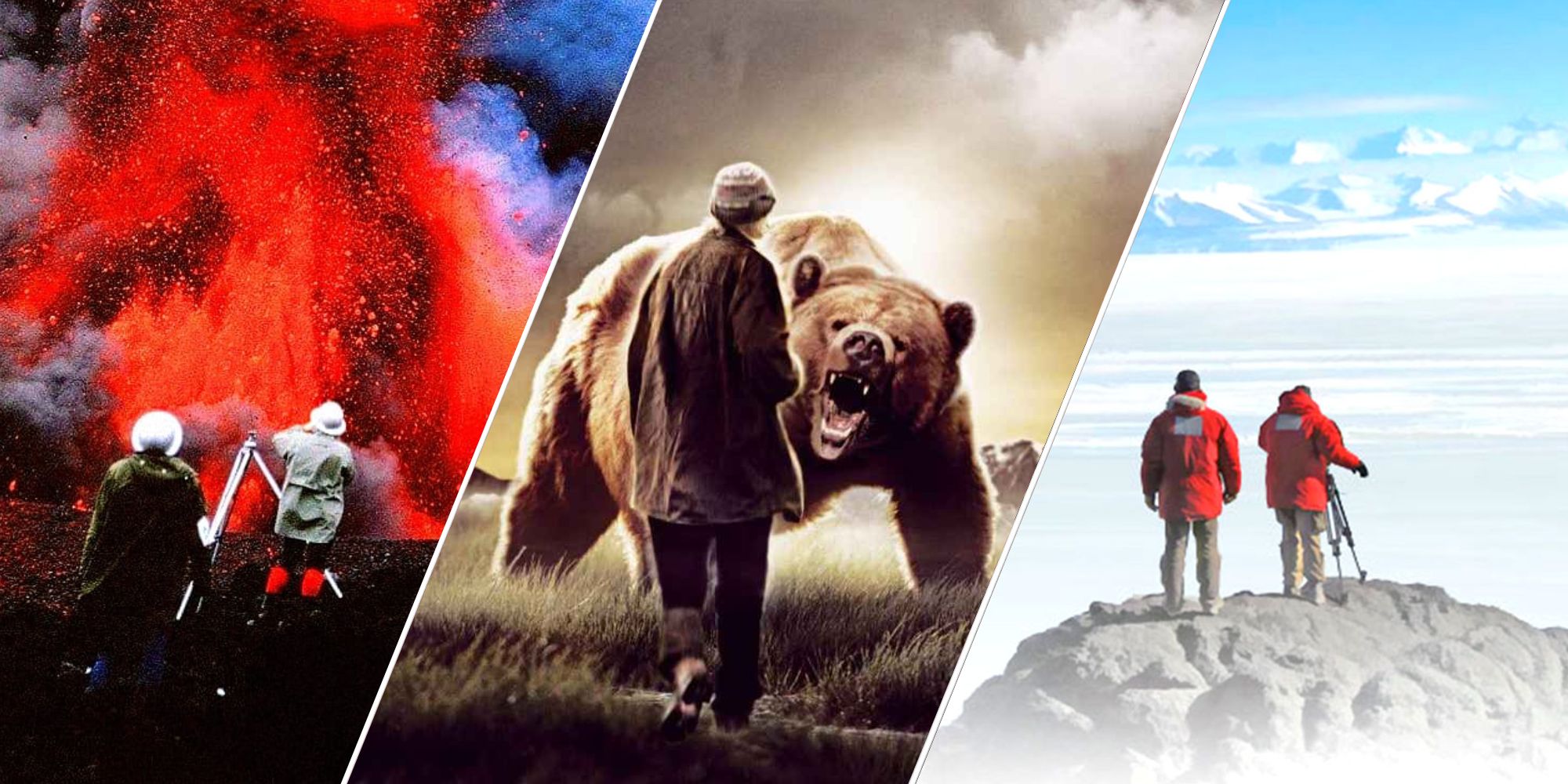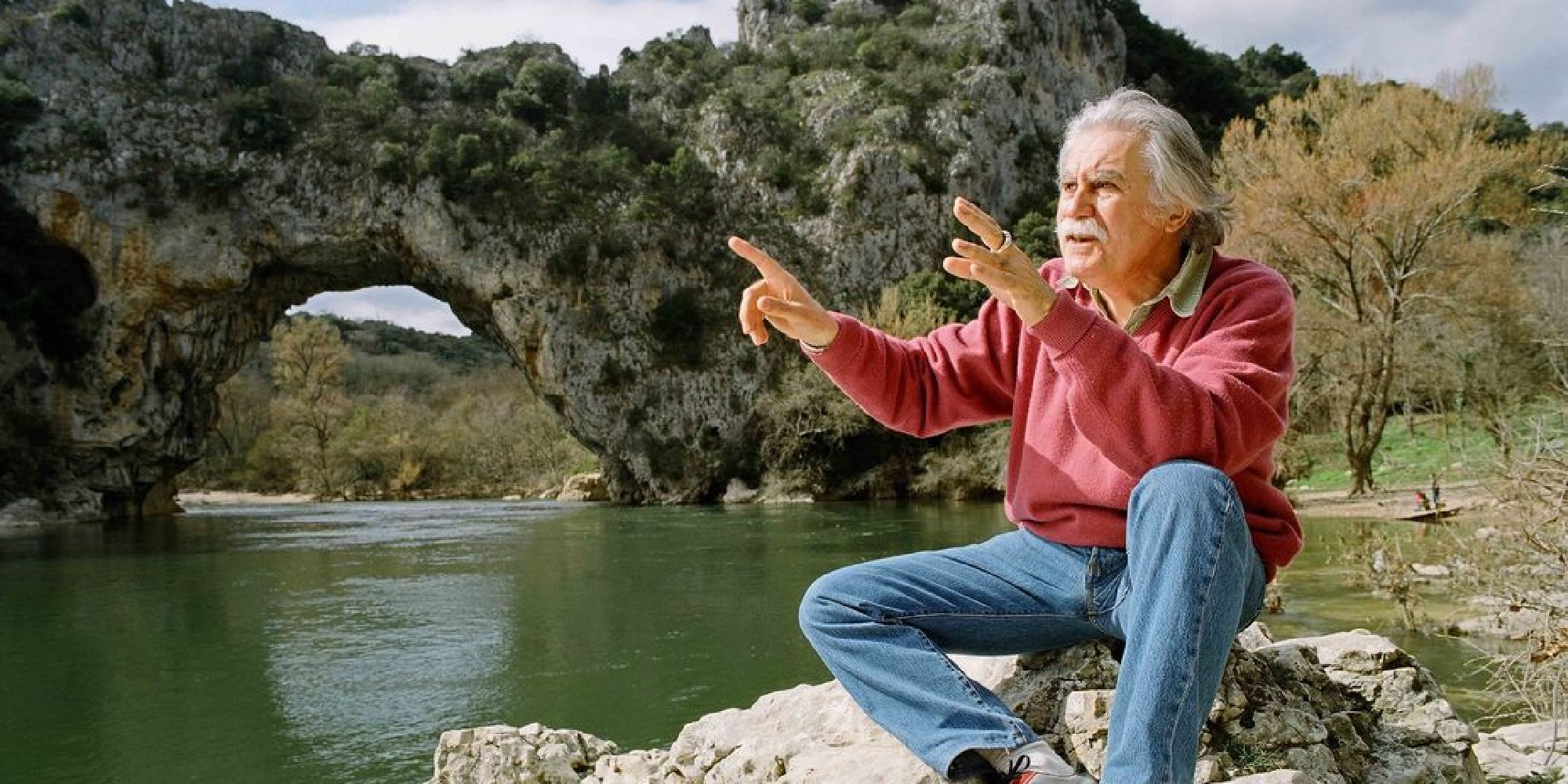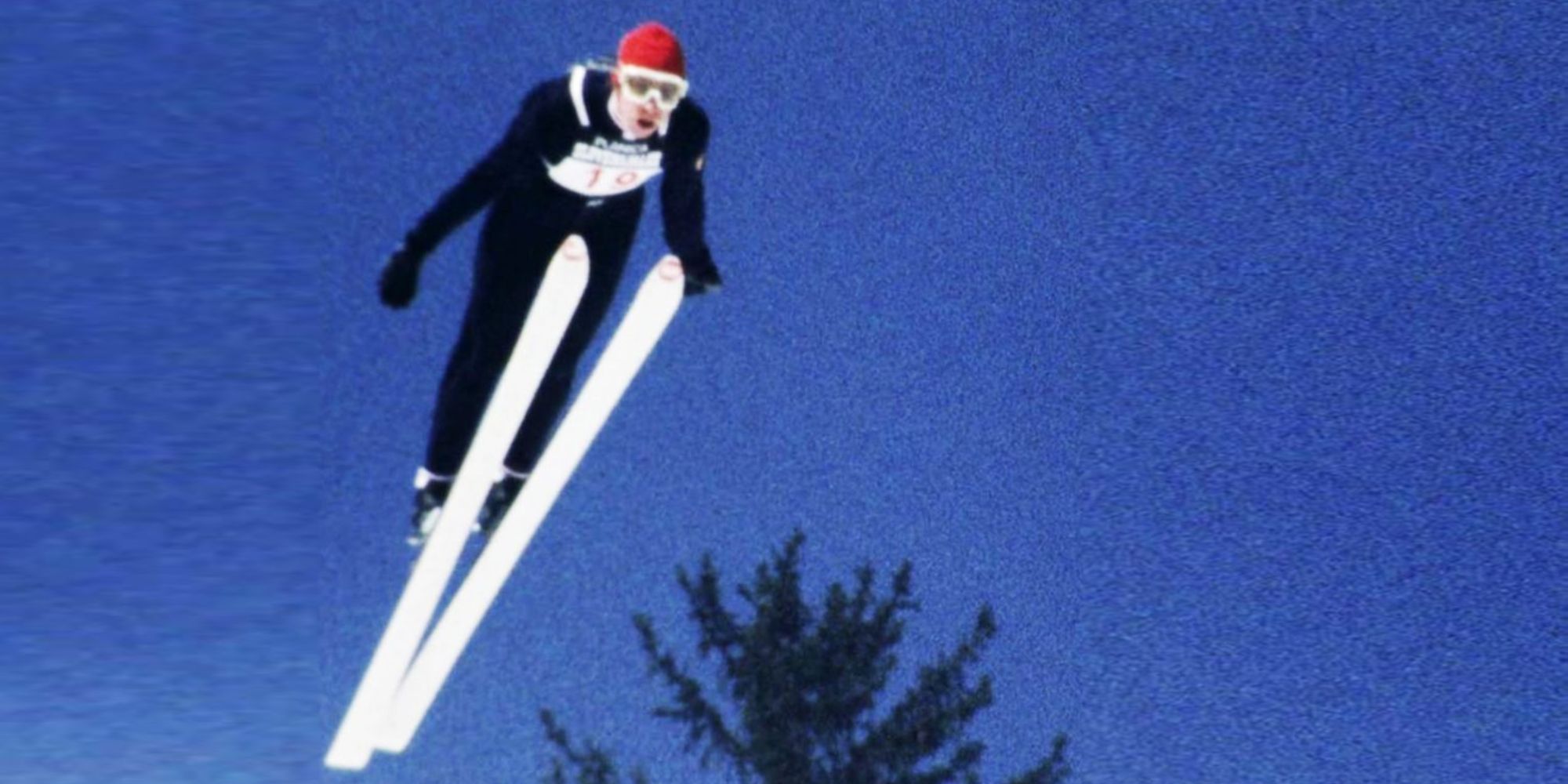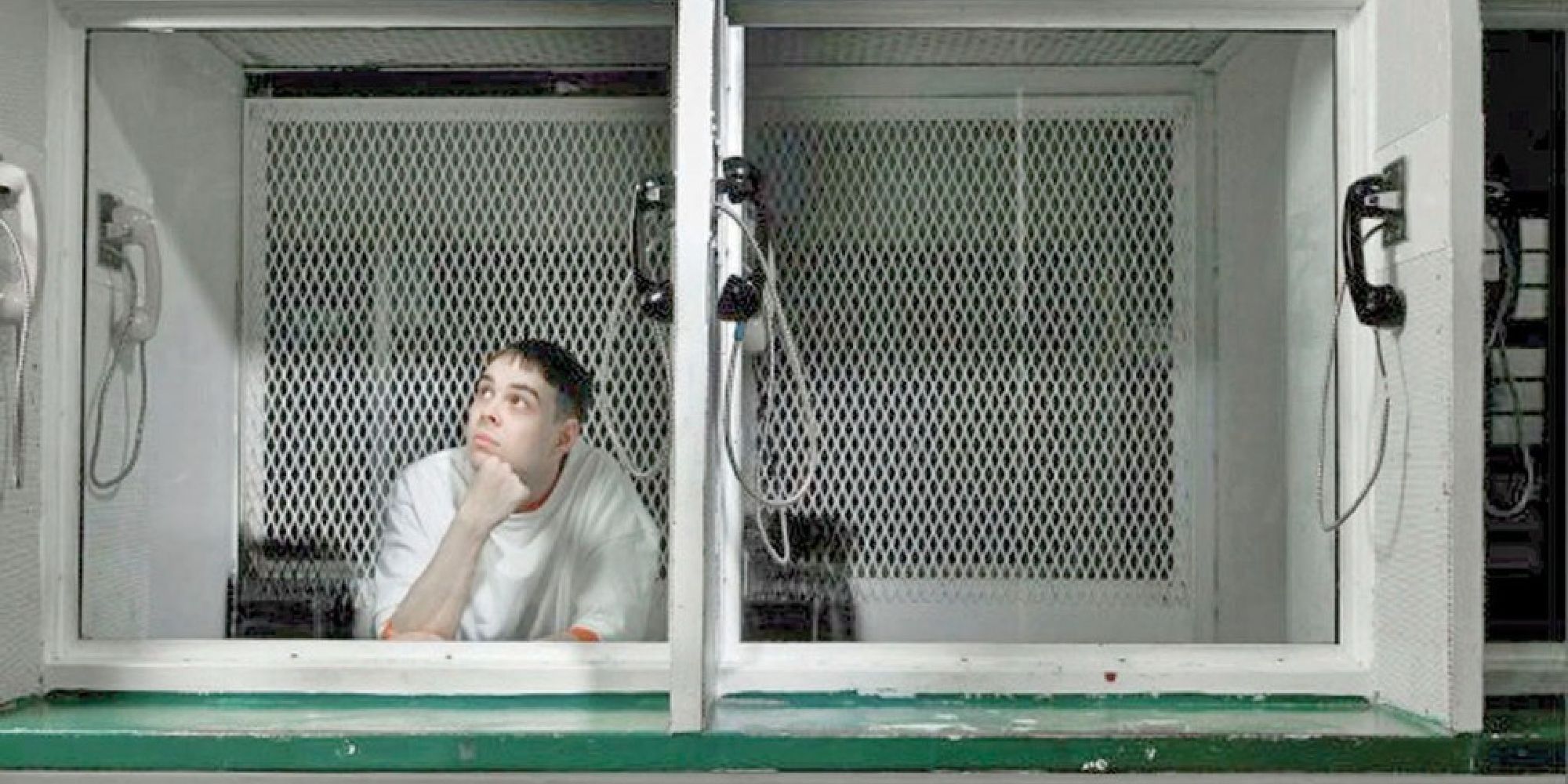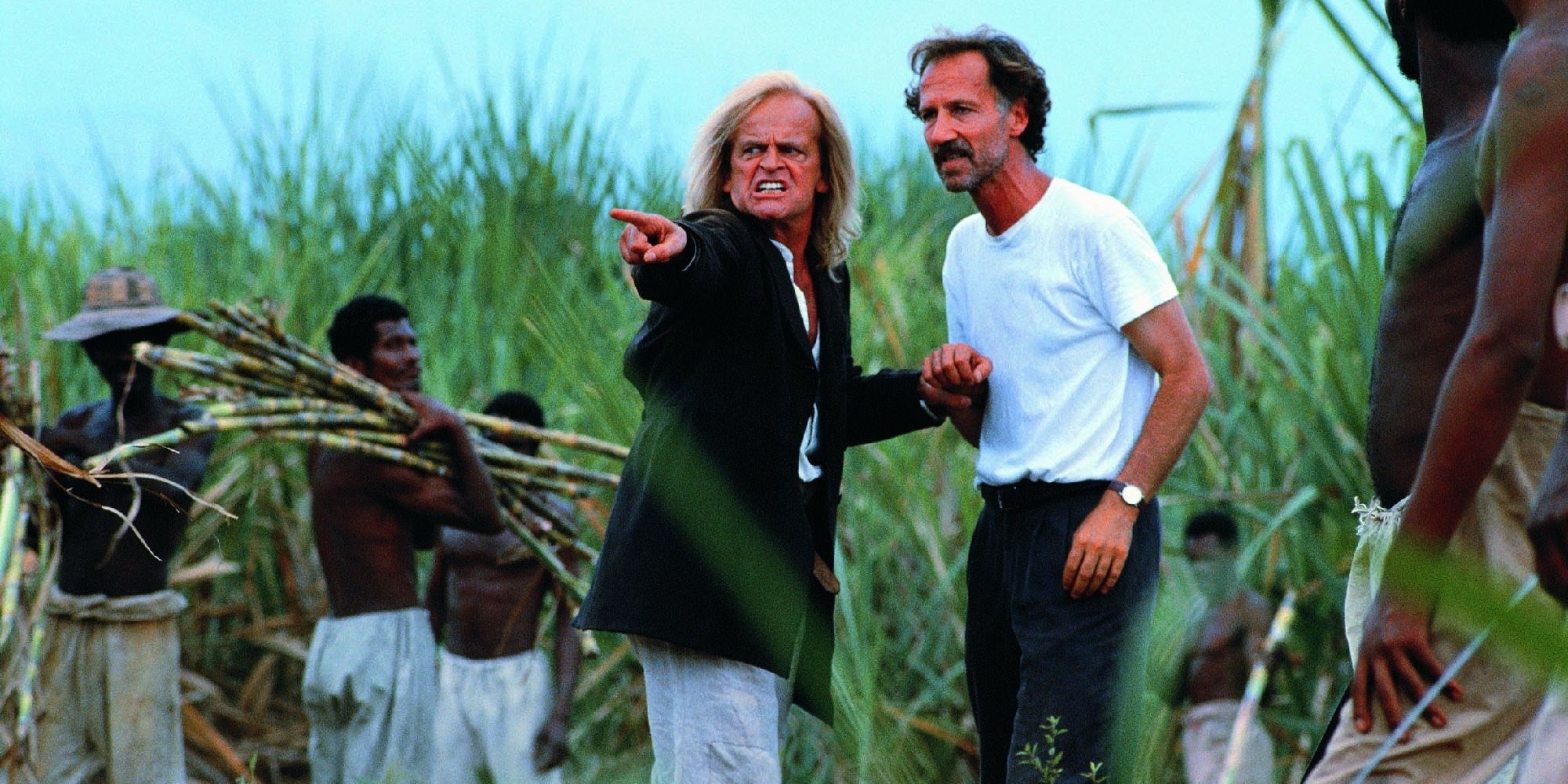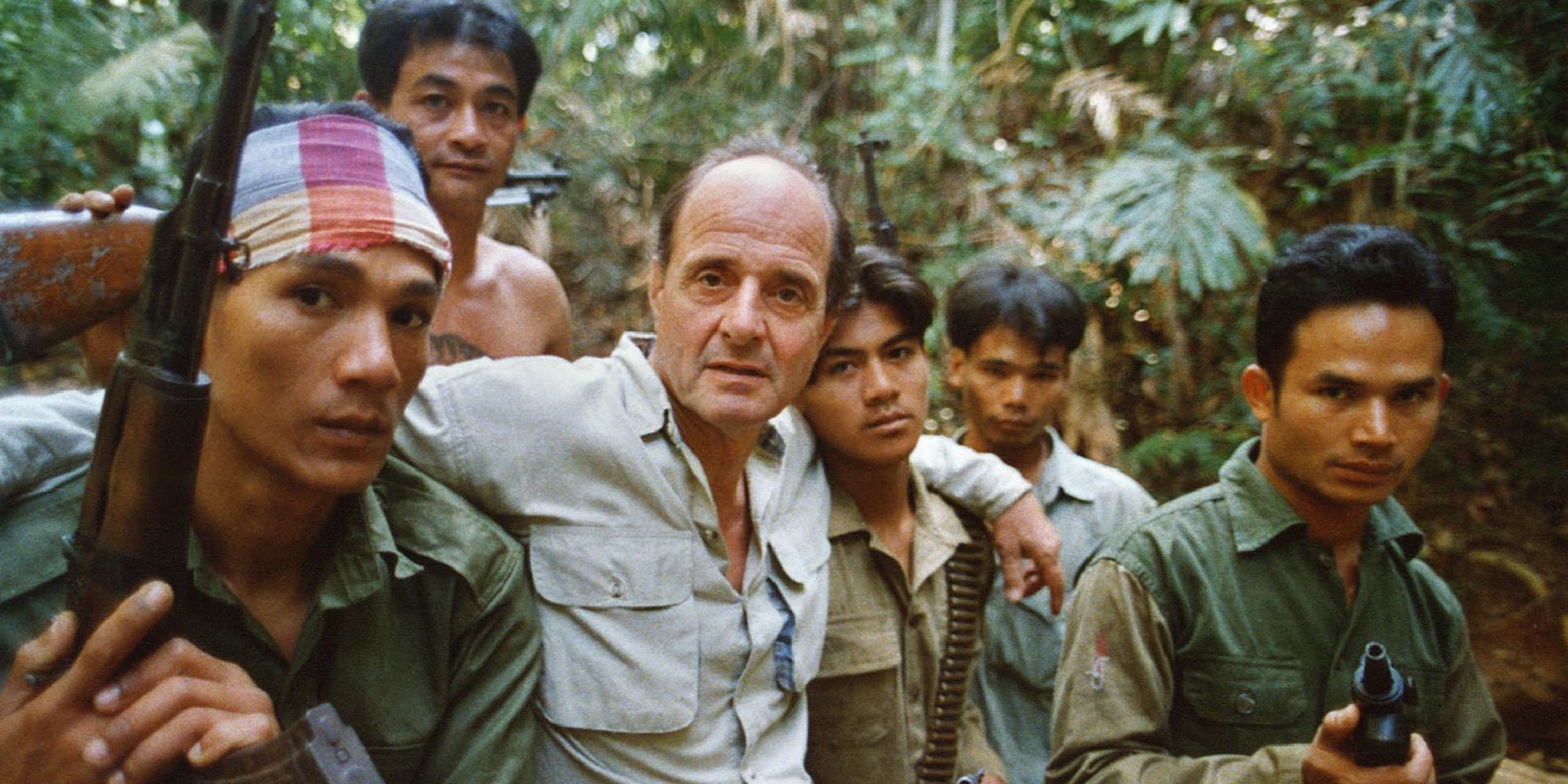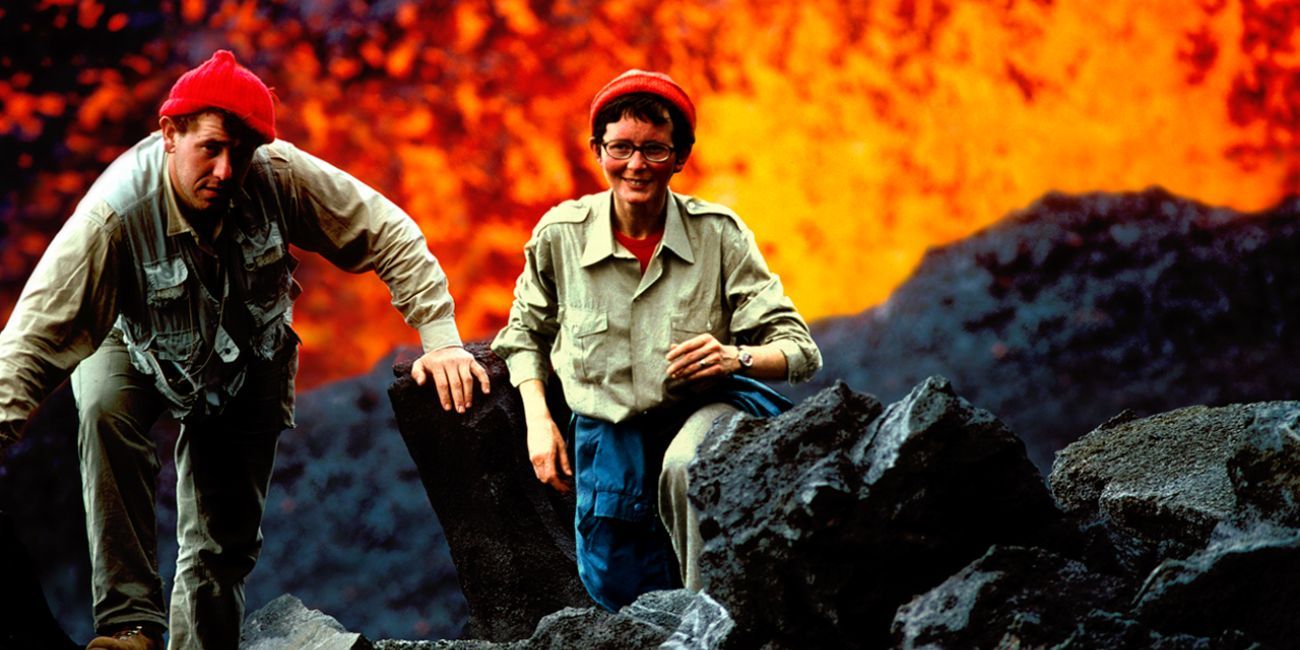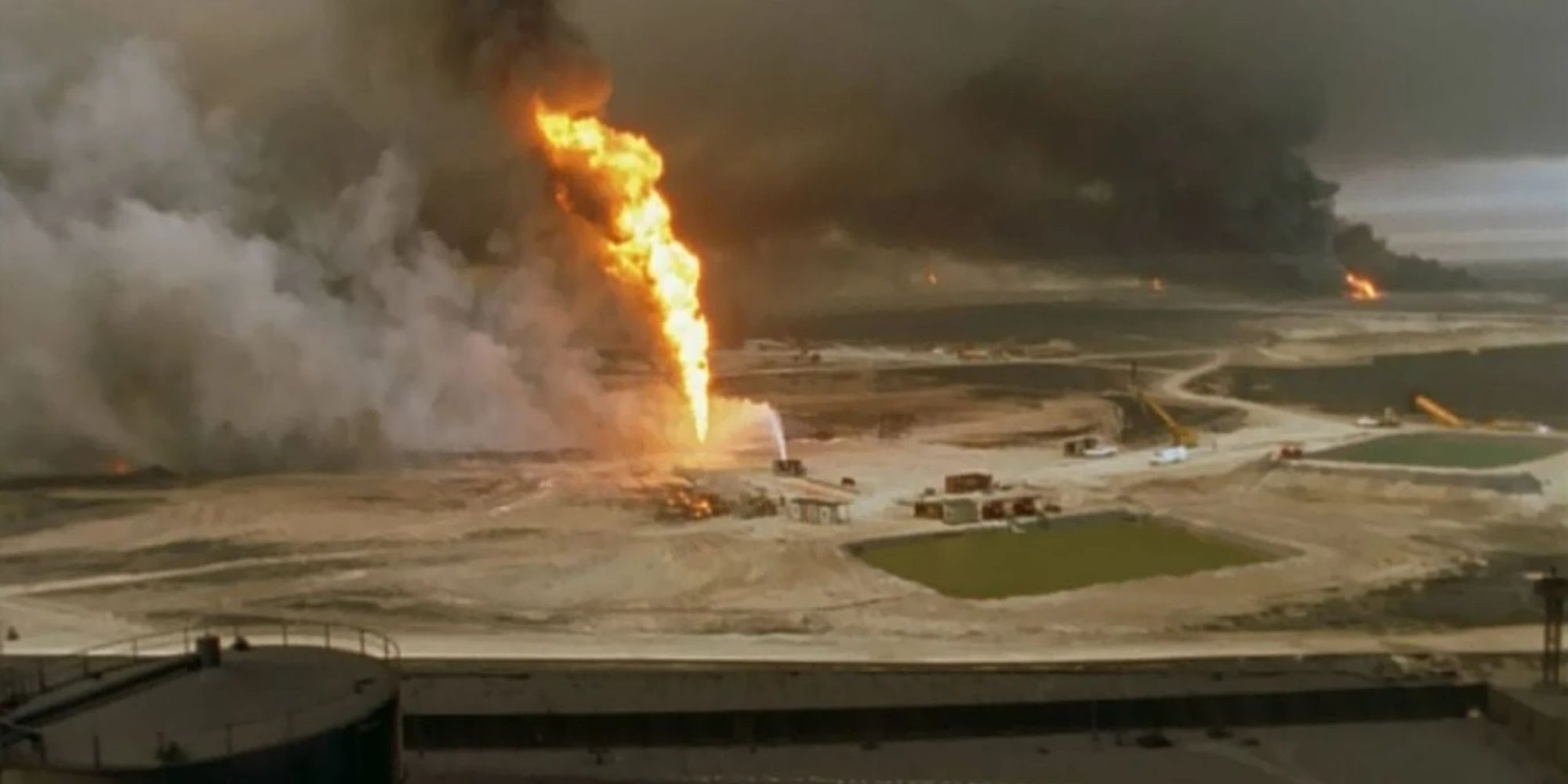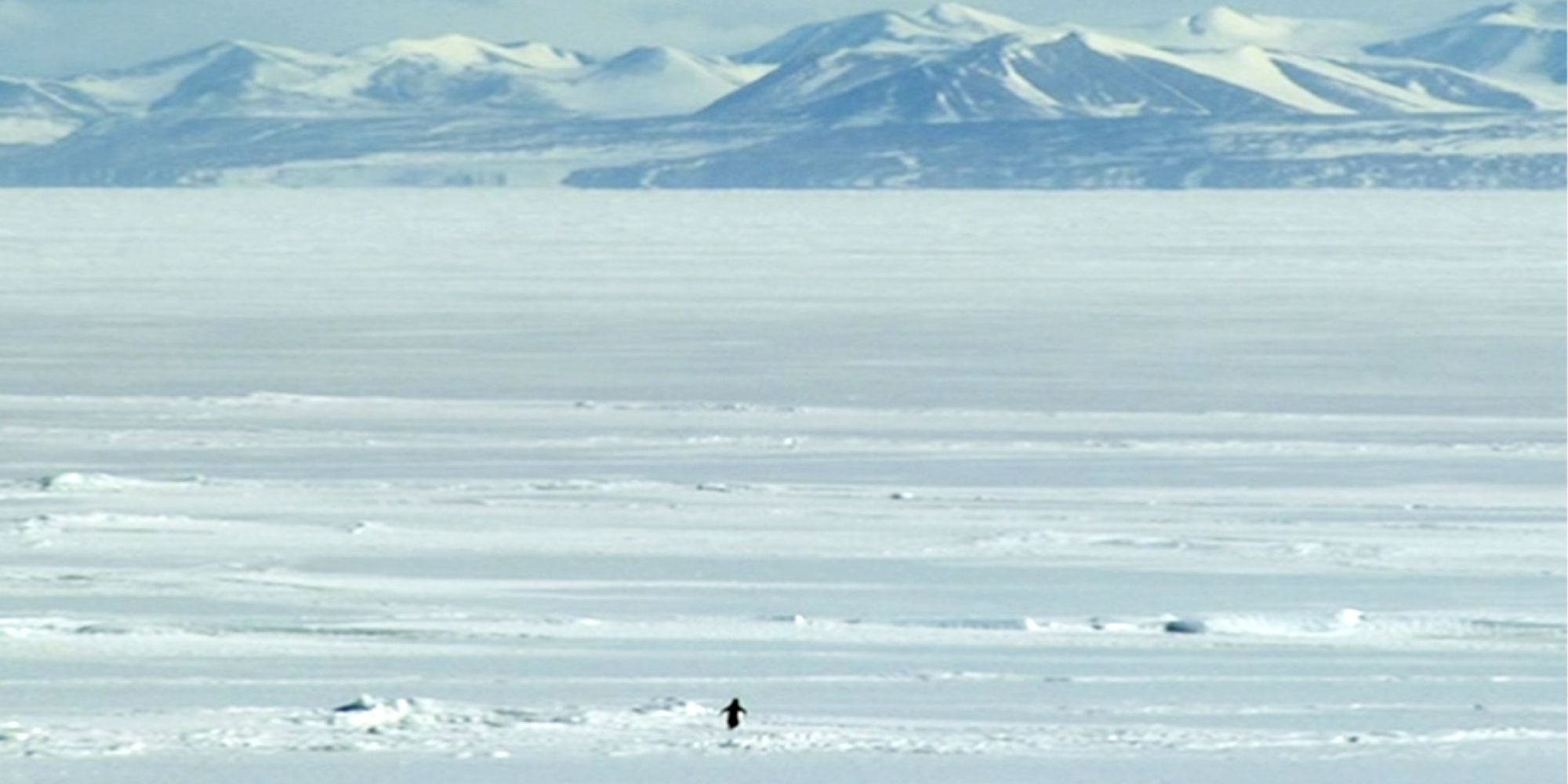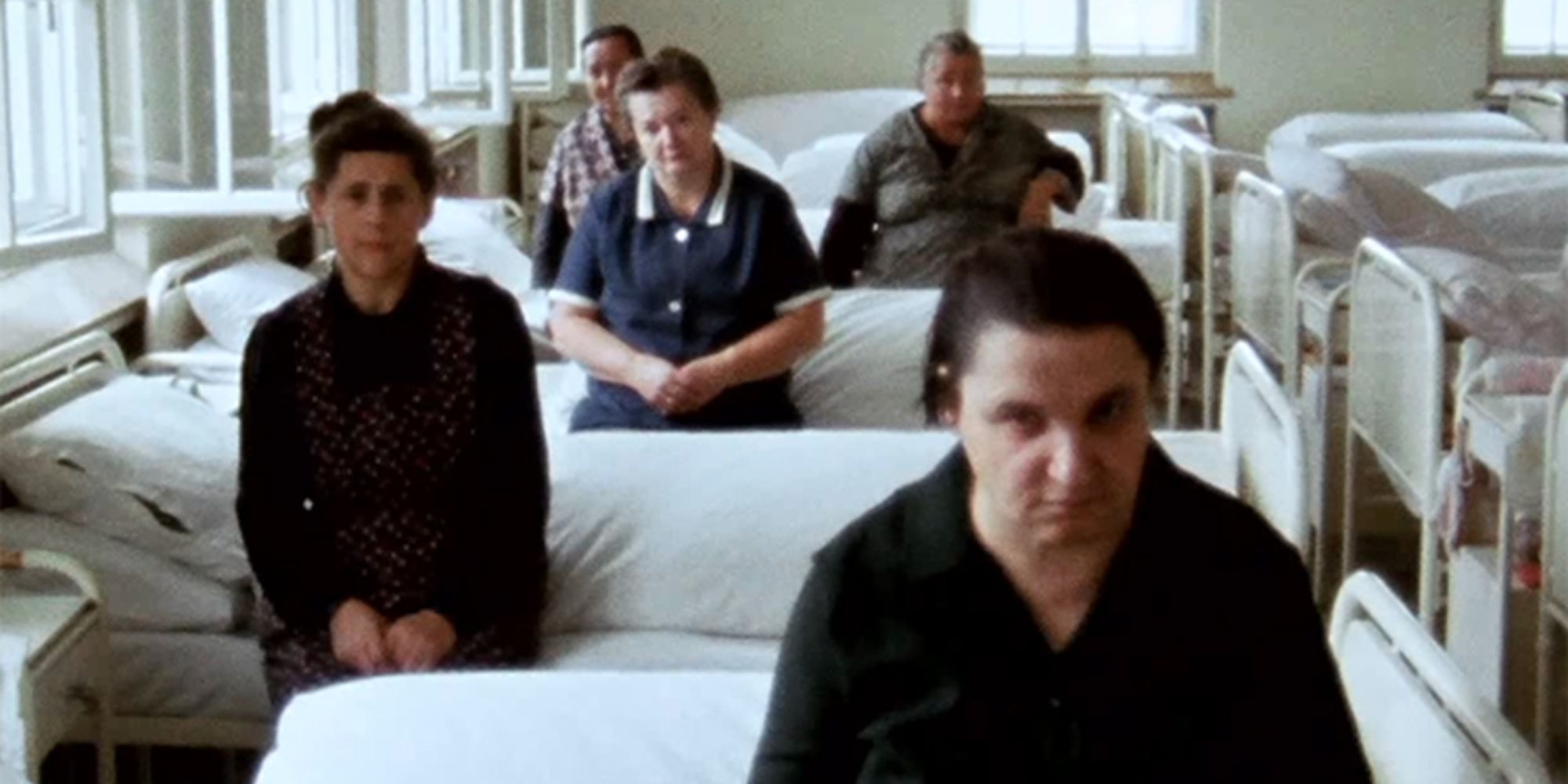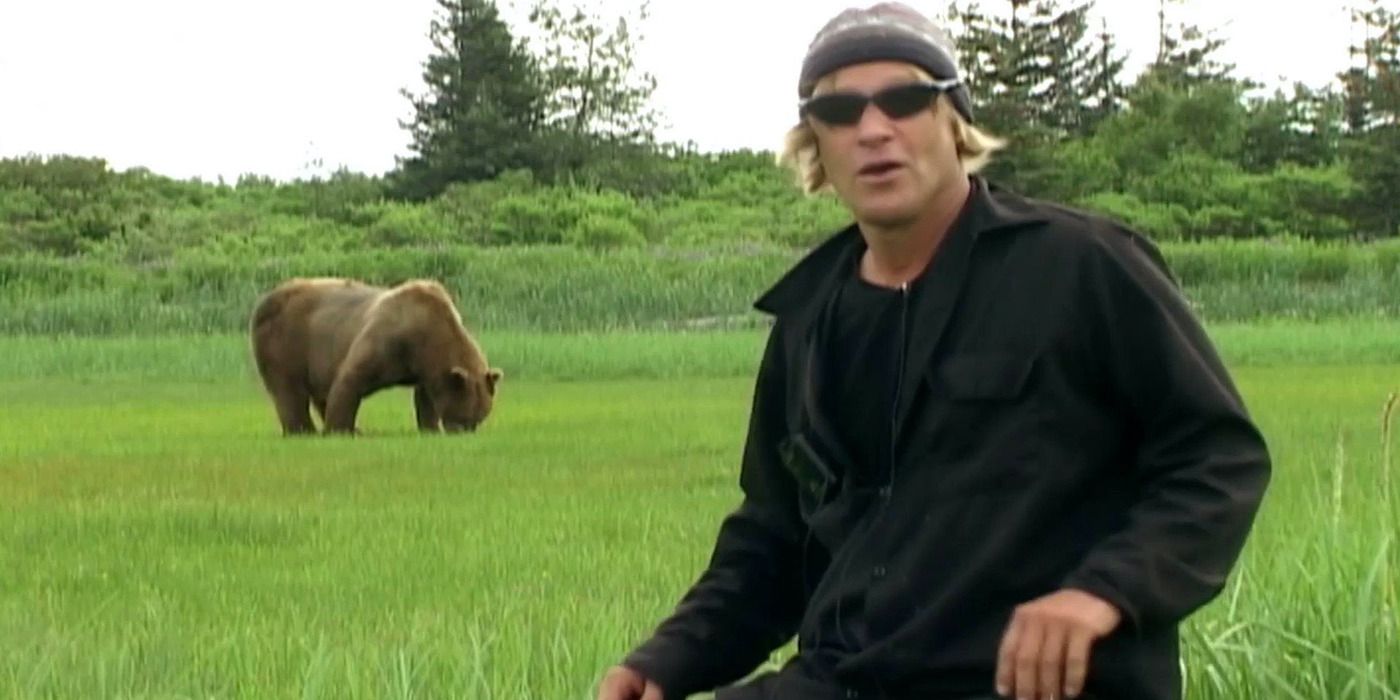There's no doubt about it: Werner Herzog is one of the greatest documentary filmmakers of all time and has been blessing the world with strange, unique, and compelling documentary features for more than half a century now. He's also made plenty of great non-documentary feature films, including classics of German cinema like Aguirre, the Wrath of God, and Nosferatu the Vampyre, as well as more recent English-language films like Rescue Dawn and Bad Lieutenant: Port of Call – New Orleans.
But of his 77 directing credits on Letterboxd, 51 are for documentaries, so it's the genre he's spent the most time crafting films within. What follows are some of his greatest documentary features, with all being worthwhile for those wanting to experience the singular, odd, awe-inspiring, and sometimes disturbing documentaries this great filmmaker made. The best of the best are ranked below, starting with the great and ending with the greatest.
10 'Cave of Forgotten Dreams' (2010)
One of the more relaxed documentaries about nature/the outdoors that Werner Herzog's made, Cave of Forgotten Dreams is all about Southern France's Chauvet Cave, and the ancient paintings contained within. Herzog essentially takes his camera inside, captures these cave paintings that date back more than 30,000 years, and interviews various scientists and experts about what the cave contains.
Compared to other documentaries from Herzog, there's little here that's morbid or disturbing, but there remains something eerie about the beautiful images captured throughout. It was also notable for being filmed in 3D, and for the fact that very few people have been allowed to view these paintings, given the cave is not accessible to the general public.
9 'The Great Ecstasy of Woodcarver Steiner' (1974)
Several of Werner Herzog's early documentaries are short films that clock in at under 45 minutes, including the quietly disturbing La Soufrière, which is about a volcano that's set to erupt and cause catastrophic damage. But given The Great Ecstasy of Woodcarver Steiner is exactly three-quarters of an hour long, it just sneaks into feature-length territory, at least according to some definitions of the terms.
The subject is a carpenter named Walter Steiner, though the documentary spends much of its time exploring what drives him to compete in the dangerous sport of ski jumping. It's an early example of Herzog exploring an unusual and determined individual in a field that can be potentially deadly and features some stunning (and sometimes hard-to-watch) footage of the sport in question, including what can go wrong for those who take part in it.
8 'Into the Abyss' (2011)
In a post-Netflix world, it can feel like crime documentaries are a dime a dozen, and often just made in a fashion that feels derivative and uninspired at best or tacky and exploitative at worst. The rise in this sub-genre makes a film like Into the Abyss all the more easy to admire because this one provides genuine insight into a difficult story and largely feels empathetic and carefully constructed.
The documentary starts as an exploration into inmates on Death Row and how they feel about the fate that's been decided for them, but as it goes along, gradually focuses more on a triple homicide case from 2001, interviewing people related to the case and individuals from the justice system. It's a tough watch at times but very absorbing, and it does feel like Herzog gives consideration and time to all sides/parties, which can feel rare in documentaries these days.
7 'My Best Fiend' (1999)
Werner Herzog made five feature films starring infamous German actor Klaus Kinski, including the aforementioned Aguirre, the Wrath of God and Nosferatu the Vampyre. The pair made great films together but had a tumultuous and fiery partnership, which is what My Best Fiend explores and recounts.
These features were made between 1972 and 1987, and as Kinski passed away in 1991, My Best Fiend also functions as a tribute (of sorts) to the fascinating actor's body of work and legacy. It's a documentary that's bittersweet, unusual, and sometimes darkly funny, with Herzog reflecting honestly on his work as a filmmaker and the things he achieved with his titular best "fiend."
6 'Little Dieter Needs to Fly' (1997)
Slightly awkward title aside, Little Dieter Needs to Fly is a remarkably well-made documentary that tells a remarkable true story. It's about a pilot and Vietnam War veteran named Dieter Dengler, and is particularly focused on how during the Vietnam War, Dengler's plane was shot down over Laos, he was imprisoned and tortured for six months, and then escaped, spending over three weeks on the run before getting rescued.
Herzog told this story in a feature film format with the aforementioned 2006 film Rescue Dawn, but Little Dieter Needs to Fly is even more emotionally powerful and haunting, despite its lower budget and less slick nature. It might be that hearing the story from the man is what makes it extra compelling because as a documentary, this is undoubtedly fascinating.
5 'The Fire Within: Requiem for Katia and Maurice Krafft' (2022)
The Fire Within: Requiem for Katia and Maurice Krafft is not Werner Herzog's first documentary concerning volcanoes by any means. He made a short documentary in 1977 called La Soufrière, and then also made a solid feature-length documentary in 2016 called Into the Inferno. This 2022 film, however, is probably the best of these.
It, unfortunately, came out the same year as the also very good Fire of Love, which tells the same tragic story about volcanologist/filmmaker husband-and-wife duo Maurice and Katia Krafft but does so in a more accessible, narrative-focused fashion. Herzog's effort is absorbing for other reasons; it's more haunted, sometimes confronting, and — even if not quite as emotional — perhaps more likely to linger in a viewer's mind after watching.
4 'Lessons of Darkness' (1992)
Werner Herzog documentaries are often offbeat and strange, but few feel quite as uncompromisingly experimental as Lessons of Darkness. Herzog narrates it the way he does many of his documentaries, but his musings are vaguer and less frequent than usual, and interviews are also not used often throughout.
It aims to depict Kuwait shortly after being devastated by the Gulf War in a nightmarish, perhaps even hellish way, with many landscape shots of oil fields ravaged by destruction and fighting. It's bleak and disquieting, but such qualities also make it one of Herzog's boldest documentary films and one of his hardest to forget.
3 'Encounters at the End of the World' (2007)
Encounters at the End of the World sees Werner Herzog going to Antarctica and exploring the continent with his own singular observations heard throughout. He undeniably captures some stunning imagery throughout, and his interviews conducted with the people who live and work there are similarly absorbing.
He also provides some very strange insight into Antarctica's animal population, including, at one point, observing a penguin leaving his colony and venturing off alone into the wilderness, seemingly to its death. It's an odd yet devastating sequence that perhaps is the most Werner Herzog scene in any Werner Herzog documentary, and as such, is naturally a high point of his entire filmography.
2 'Land of Silence and Darkness' (1971)
Due to its age, Land of Silence and Darkness unfortunately seems to get overlooked all too often, when people discuss the films of Werner Herzog. It was just his third feature-length documentary, but remains one of his very best to this day, following a woman named Fini Straubinger, and the challenges that come from her living life while being both deaf and blind.
It looks at the isolation that deaf-blind people experience as a result of their conditions but also documents the ways they adapt and still manage to live life, even with the struggles they face. It's a documentary that can be both sad and inspiring and is overall one of the most empathetic films of all time, showing that even when he was just 29 years old, Herzog was already a master documentary filmmaker.
1 'Grizzly Man' (2005)
Deservedly standing as one of the highest-rated films from the 2000s on Letterboxd, Grizzly Man is a masterful documentary and the best among many great ones Werner Herzog has made. Its subject is a man named Timothy Treadwell, who spent much of his time putting his life at risk by living among grizzly bears in Alaska and documenting his experiences on film for more than a decade. Ultimately, he and his partner died in a bear attack, leaving behind footage/video diaries, as well as many unanswered questions.
It's those questions that Herzog uses this film to try and answer, delving into why Treadwell did what he did and more broadly, what would drive a person to live so riskily. It's a disturbing, sad, near-perfect, and perplexing documentary, and certainly one that only Werner Herzog could've made.

